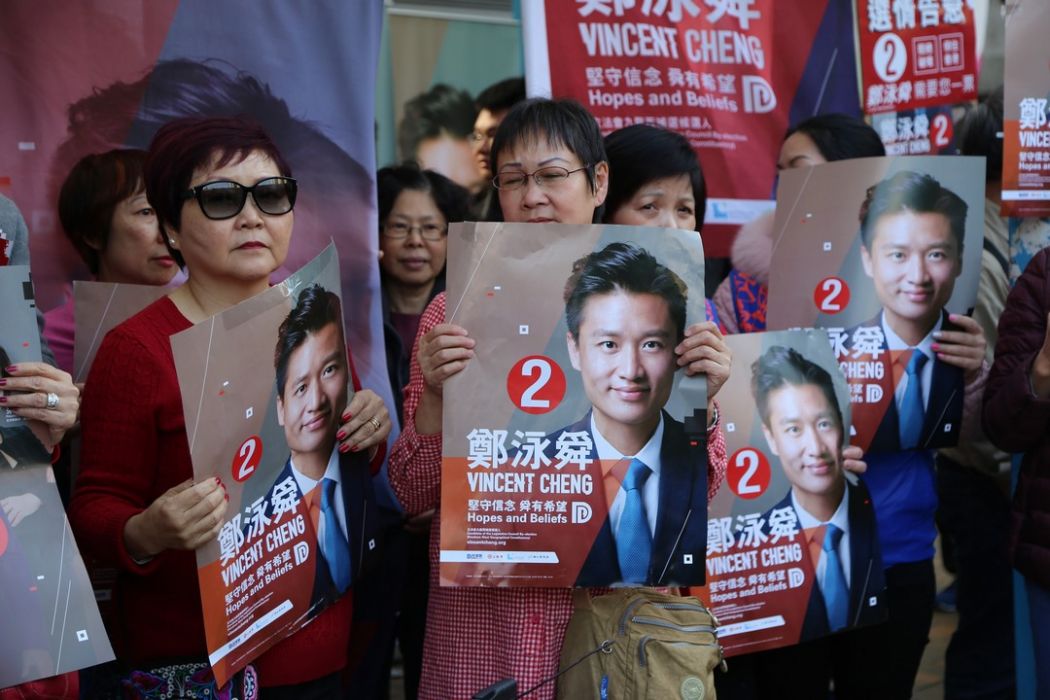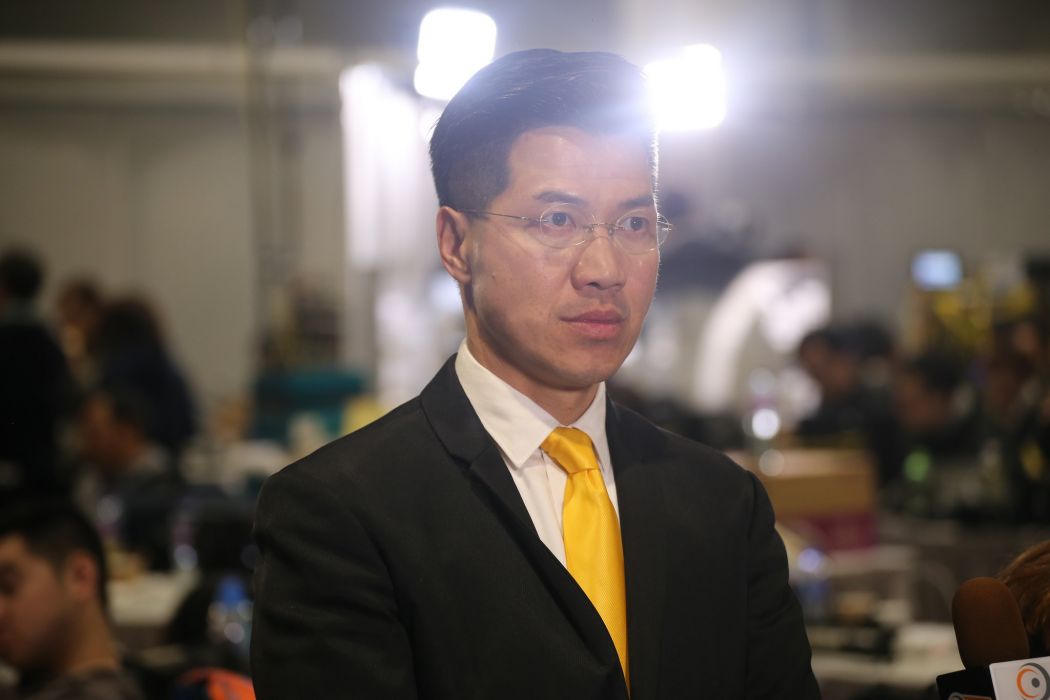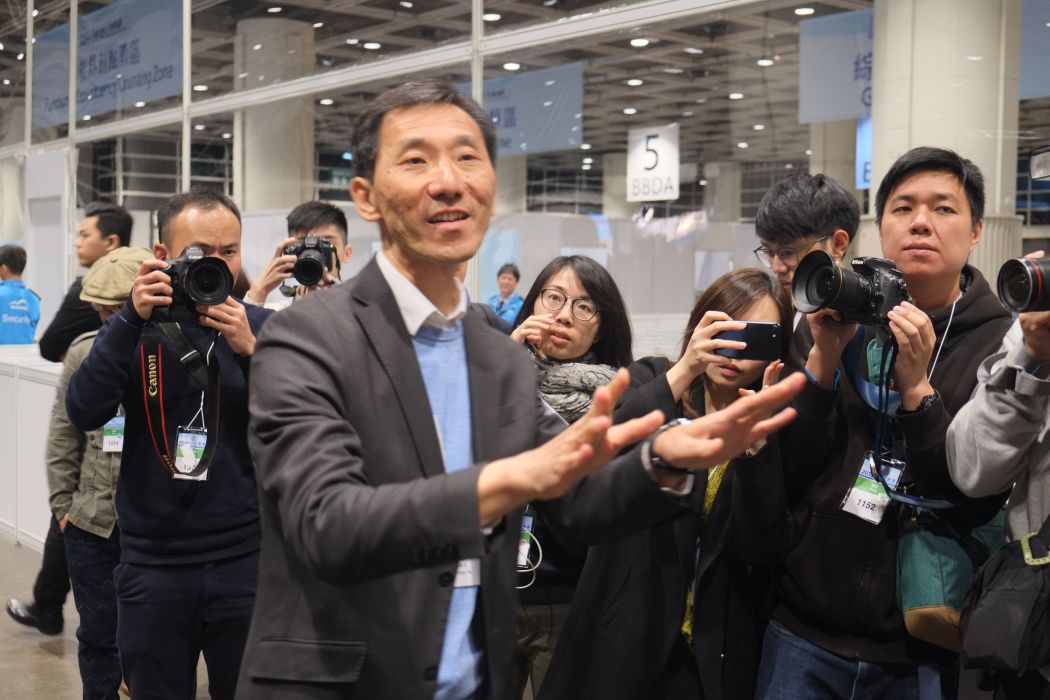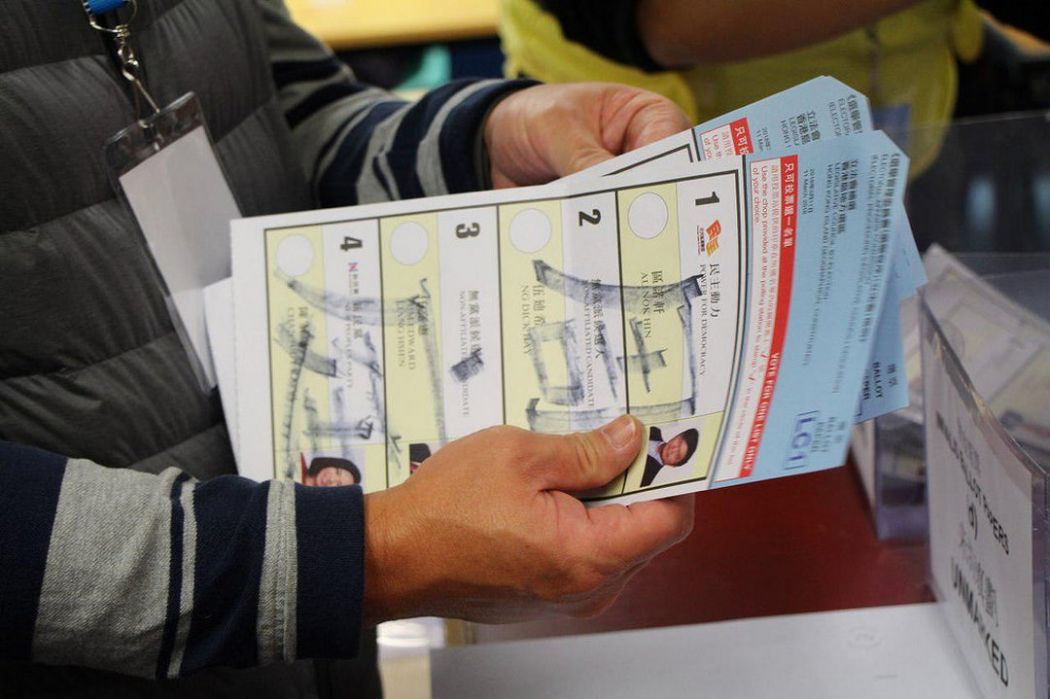The results of this month’s Legislative Council by-election were split evenly between the pro-democracy and pro-establishment camps, with each returning two of the four seats contested.
The results however do represent a loss for the pro-democracy camp, given that the by-election was called following the disqualification of four of pro-democracy legislators. The loss of these two seats is an effective loss, as the pan-democrats will no longer have sufficient seats in the Legislative Council to veto legislation. Indeed, two further seats may be vacated pending upcoming court rulings.
However, it is not the ill-considered actions of the disqualified legislators that has caused public concern, but the process by which legally elected legislators were disqualified — a process that has at best challenged the rule of law in Hong Kong. Every (re)interpreted of the Basic Law by Beijing, especially prior to a related court ruling, not only challenges our understanding of the law and threatens the independence of our legal system, but also diminishes public confidence in our most important public institution.

The democratic camp sold this by-election as a “de facto referendum” on these disqualifications. But was this a call to support a political position or a play for the sympathy and opposition vote as a means to get more voters to the booth?
Pro-establishment parties, who are better financed and receive significant support through traditional community organisations, can consistently rely on a grassroots bloc vote. Colloquially called DAB ‘uncles and aunties’, every election is marred by stories of this greying red army being bussed in to vote — a vote secured as much by coupons as personal conviction.
This is a support base no pro-democracy party can call on, and given the politics for which they stand ought never consider cultivating. Instead, with far more limited resources, they must rely on appealing to a more fickle and independently minded crowd of core supporters drawn predominantly from the educated, aspirational and urban lower middle and middle classes.
Whilst pro-democracy candidates Gary Fan Kwok-wai and Au Nok-hin both won their seats comfortable in their respective geographical constituencies, New Territories East and Hong Kong Island, the press have been quite right to point out that the winning margins were less than may had expected.

However further analysis of the vote as reported by StandNews and Initium, and an understanding of the context in which these elections were held tell an altogether different story. Much of the English language and International Press have reported only, to take an Associated Press headline, that the ‘Hong Kong pro-democracy movement loses ground’. Not only can this not be stated as fact — the democratic movement is much more than those political parties within the legislature —but it also misses a more significant change that these elections results likely highlight.
Gary Fan, Au Nok-hin and Edward Yiu had considerable challenges to overcome not of their own making in contesting their respective constituencies.
At the last general election in 2016 pro-democracy candidates received 57.6 percent of votes and pocketed six out of the nine constituency seats in New Territories East, But on this occasion, Gary Fan, of the Neo-Democrats, only managed to secure 183,762 votes, or 44 percent of the vote.

In fact, Fan’s 44 percent is significantly higher than the 37% Alvin Yeung managed in winning the previous election. The barring of Hong Kong Indigenous from fielding a candidate accounts for the discrepancy. Edward Leung Tin-kei, the party’s founder and one of the four lawmaker to be disqualified had won 17% of the vote in 2016.
Similarly, Au Nok-hin, contesting Hong Kong Island, was also expected to do better than he did in winning 51% of the vote. Au’s, a former activist and new-comer to politics received 137,181 votes, far less than the 175,874 votes political heavyweight Anson Chan Fang On-sang received in a similar by-election in 2007. However, given the relative profile of the two, and the fact that Au’s candidacy was only put forward following the recent debarring of Agnes Chow, arguably the most popular and able of the new generation of student activists, reports describing Au’s win as, to quote one commentator, ‘representing a loss of 38,324 votes’ is deeply misleading. (And yes, these numbers do not add up.)
But the more obvious duck out of water was Edward Yiu Chung-yim. The former representative for the architectural, surveying, planning and landscape functional constituency may have on paper appeared a strong candidate, but by parachuting him in as their candidate the pan-democrats also sidelined veteran local politician Frederick Fung Kin-kee, who was to many residents in the constituency a far more appealing choice.

Fung, a long serving democratic and leader of the Hong Kong Association for Democracy and People’s Livelihoods may lack Yiu’s presence in the chamber, but he is one of the few truly grassroots democrats with a loyal support base in one of the territories poorer constituencies. The saga of Fung’s resignation from the candidacy some months ago following a territory wide ‘pseudo-referendum’ called by the pan-democratic camp understandably left many of his supporters unhappy and unlikely to vote for Yiu. The results coupled with post-election surveys suggest they did not vote.
Photographs of Yiu riding a yellow bicycle along Nathan Road may have be good for his media profile, but even at the time what stood out most about the pictures was the lack of any popular public engagement. Solid social media skills and a cycling around town may win you seats on the island, but not among the poorer neighbourhoods of Sham Shui Po, where sincere and committed social advocacy win votes.
Given these circumstances it is frankly surprising that pro-establishment candidate Vincent Cheng Wing-shun, with the considerable financial and organisational support of the DAB, did not win by a larger majority. His margin of victory was less than 1 percent, and sufficiently slim to warrant a recount. And yet, his win was universally reported as a ‘surprise’ and, in pro-establishment papers, as evidence of public support for Beijing’s line. Yet abstention is not a sign of support.
Only in the one functional constituency contested, that for the architectural, surveying, planning and landscape sectors, did the pro-establishment candidate, Tony Tse Wai-chuen (2,929 votes) soundly beat the pro-democracy candidate, Paul Zimmerman (2,345). But as was obvious even to Alex Lo, writing in the South China Morning Post, Zimmerman had ‘became a lost cause long before election day, thanks largely to his trouble with illegal structures found at his home in Sai Kung.’

But let us not forget that Zimmerman was already very much the underdog when he announced his candidacy. Tse, a past representative of the constituency who had, regardless of his political leanings, maintained a good standing within his profession was a strong candidate. And yet, this is a point hardly mentioned following his win.
More important than the results though is what the election itself seems to be reflecting. Here the more important numbers to consider are not those that show the way votes were cast but those of voter turn-out.
Only 904,000 of 2.1 million registered voters in the four constituencies cast their ballots; a voter turnout rate of 43 percent, with a deviation between constituencies of no more than 2 percent. This represents a significantly fall on the two previous general elections in 2012 and 2016 when 53 percent and 55 percent of eligible voters voted.
In the three geographic constituencies contests overall votes cast for pro-establishment candidates were not significantly more than they had been in past, again suggesting a reliance on a core bloc of support. It was in votes for pro-democracy candidate, as I have already stated, that we see significant movement. Therefore the message to be taken from the by-election results is that an increasing number of people predisposed to voting for pro-democracy positions are choosing no longer to vote.
This is firstly due to a narrowing of representation tolerated by the government. The many political parties advocating self-determination as an option, including among others Hong Kong Indigenous and Youngspiration that did so well in the 2016 general election and whose legislators have been disqualified, were debarred from fielding candidates. And yet the expected windfall to other more moderate democratic positions as represented in Fan, Au and Yiu failed to materialise. Clearly the pan-democratic camp do not represent nor appeal to the full spectrum of the democratic movement.

The democratic movement remains critically split between those more moderate voices within the legislature and those who have lost faith in both the government and Beijing to even hear out their grievances. The by-election results therefore do not represent a loss for the opposition or pro-democracy camp, but for those parties still in the legislature who have not been debarred, declared illegal or prevented from fielding candidates — all actions taken by this current government and actions that contravene the rights we were supposedly guaranteed under the Basic Law.
The by-election results do not reflect a loss for the democracy movement in Hong Kong, but the way it is being forced to evolve. It represents too a loss of faith in the constituted political system that is fully understandable given the disqualification saga.
It has become increasingly obvious to an increasing number of people that the constituted political system is open to abuse by those within the political establishment who ought by principle to be its guardian. In such circumstances one can no longer presume that people will turn to official politics as the arena through which they seek to interact with authority.

The democratic aspirations of all people remain. It is tied to our nature, and there is only so long one can cower before the bullying force and argument that might is right. These aspirations in Hong Kong need not be further alienated from mainstream politics, let alone deemed as unpatriotic, which merely adds impetus to further radicalisation.
The real loser is of the 2018 by-election is therefore not the democratic movement, but Hong Kong’s political system in which people have lost faith. Regardless of what was agreed in the Basic Law, it is surely in the interests of all parties that faith in the political system is rebuilt.
